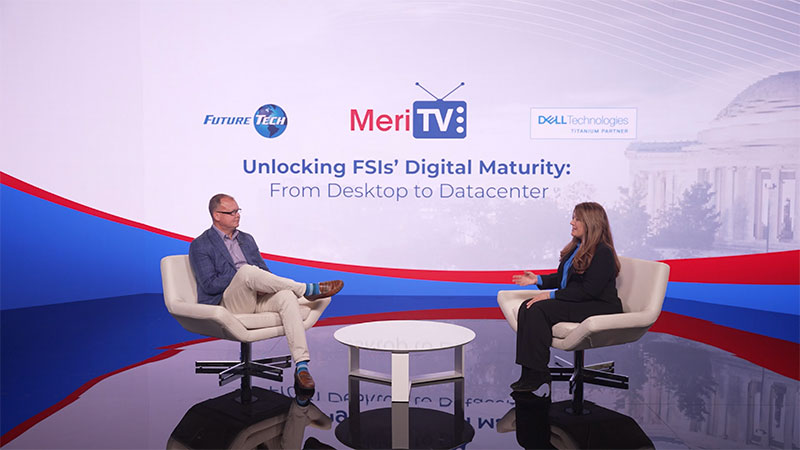
As Federal systems integrators (FSIs) navigate increasingly complex modernization efforts, digital maturity has emerged as both a strategic goal and an operational necessity. In a recent MeriTalk Coffee Talk interview, Mike Watkinson, chief revenue officer at Future Tech, offered an insider’s view into how FSIs are evolving their IT lifecycles, harnessing data, and building lasting partnerships to enable mission-driven outcomes.
Moving From Redundant Platforms to Enterprise-Wide Data Value
Watkinson emphasized that digital roadmaps today extend well beyond infrastructure upgrades. FSIs are focusing on unlocking organizational agility and innovation by overcoming legacy system sprawl and data silos.
“The traditional challenges around people and process and technologies come from inorganic growth, where over time, acquisitions create redundant platforms, redundant applications,” Watkinson said. “From a data and data management perspective … it’s about unlocking value from data across the organization.”
Building the Innovation Loop
Future Tech helps FSIs untangle overlapping enterprise systems resulting from mergers and acquisitions, while also tackling the broader challenge of technical debt. The approach: Connect decentralized innovations across the organization and standardize what works.
Watkinson describes the process as a “virtuous loop” – beginning with innovation, crystallizing standards, and resolving technical debt. That mindset applies from edge devices to data centers.
“We connect the dots across innovations, and so what is becoming common and repeatable and scalable is the new standard that we’re striving for. That’s how we address the technical debt over time,” Watkinson said.
Creating Strategic Ecosystems
Strategic partnerships are a critical component of this evolution. Watkinson pointed to Future Tech’s work brokering the first NVIDIA enterprise licensing agreement (ELA) in the Federal space as a pivotal moment. The agreement surfaced previously untracked AI activity and laid the groundwork for new governance and architecture standards.
“That’s an example of a longer-term commitment [and] an example of how you operationalize the drawdowns and the chargeback for things like ELAs across the organization, across business sectors, across programs, and that’s been traditionally a challenge for FSIs,” Watkinson noted. “Future Tech has done that with NVIDIA and Dell and others to really take advantage of that aggregate spend over time.”
These partnerships also enable FSIs to shift from capital to operational expenditure models, creating new pathways to long-term savings. One such transformation helped a customer realize $100 million in hardware and software savings over five years, Watkinson said.
Accelerating AI Adoption in a Trusted Environment
With AI innovation growing across government and industry, Future Tech is investing in secure testing environments that allow FSIs to pilot AI use cases with confidence. Utilizing the Dell AI Factory with NVIDIA, Future Tech is enabling organizations to experiment using synthetic data and high-performance GPUs in classified, on-premises environments.
“We think it’s going to accelerate their [AI] journey and lead them towards that justification” for new use cases, Watkinson said.
Building Trust and Transparency
Reflecting on his work with FSIs over nearly three decades, Watkinson said trust is the foundation of successful customer relationships.
“Transparency is what unlocks the opportunity, but it requires a lot of trust,” he said. “[Our customers have] high standards of excellence, and building that type of relationship … for the 28 years that we’ve been in existence says a lot about how we think about our customers.”
Watch the full interview: https://www.meritalk.com/meritv/unlocking-digital-maturity-from-desktop-to-datacenter/
